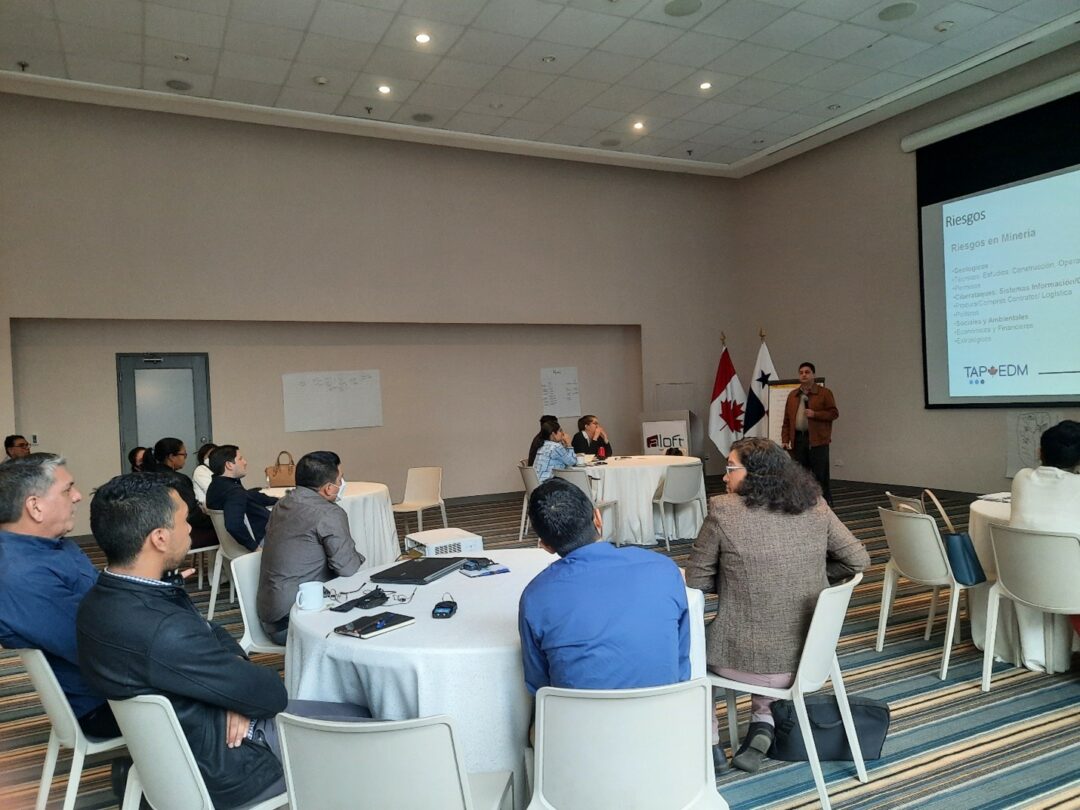Deborah Archibald, Executive Fellow, University of Calgary, School of Public Policy
The Government of Canada’s Technical Assistance Partnership – Expert Deployment Mechanism (TAP-EDM) in partnership with Alinea International is supporting Panama to develop capacity to regulate Panama’s mineral exploration and the mining industry in a way that supports responsible and sustainable development.
In contributing to the Panama TAP-EDM project, I bring decades of experience in regulating the mineral exploration and mining industry in Canada’s North. Through my Executive Fellowship with the University of Calgary School of Public Policy, I can share Canadian best practices and experiences with jurisdictions around the world. During my tenure as Director, Extractive Resource Governance Program (ERGP) with the School of Public Policy, I have been honored to work with numerous jurisdictions (Mongolia, Kenya, Columbia and others) to support them in developing capacity to build legislative and governance framework that support sustainable development of their mineral, metal and energy resources.
The Panama TAP-EDM project is multi-faceted, but the overarching goal is to build capacity in Panama’s public service to ensure that development of minerals and metals benefits the residents of Panama while at the same time ensuring that the environment is not compromised.
The first component of the training that we provided was Gender Based Analysis (GBA+) training. We were fortunate to partner with Canadian Equality Consulting to deliver the program. We were delighted to host about 30 participants in the virtual training held in late June (UCalgary and Panama, virtually via zoom). Initially, many participants thought that gender equity meant equality of males and females in the mining industry. It was a pleasure to see the “lightbulbs in their heads go off” as they were introduced to concepts such as diversity, inclusion, intersectionality, and the application of the GBA+ tool across a broad range of sectors. I was encouraged to see that Government of Panama has established a Status of Women Secretariat to advance the interests of women in Panama. An unexpected and pleasant surprise was the participation of Panama’s Ambassador to Canada, the Honourable Romy Vasquez.
The second component of the training was an in-country, four-day workshop on Environmental Management (Auditing) during Mine Operations. This course provided a combination of traditional lectures, guest lecturers, lessons learned, strategies such as risk management and work in breakouts groups. Topics covered included foundational concepts such as sustainability and a deep dive into the management of tailings ponds, processing facilities, waste piles and mechanisms for environmental compliance monitoring. This short course will improve the capacity and ability of the participants to ensure that the impact of mine operations on the environment is minimized. The participants received a UCalgary School of Public Policy Executive Certificate in Environmental Management.
The third component of the training was a Study tour with a very small group of individuals from Panama to observe an operating mine. The seven individuals that traveled to Canada were professionals such as geological engineers, mining engineers and environmental engineers from both the Ministry of Commerce (that houses the National Mining Authority) and the Ministry of Environment. The Study Tour began with an all-day meeting with the Ministries of the Government of British Columbia that are involved in regulating the mining industry in Victoria, BC. This included the Ministry of Mines, Energy & Low Carbon Innovation (MELCI), the Ministry of Finance and the Ministry of Environment and Climate Change (ECC). Presentations were given on the importance of government investment in geoscience (by the BC Geological Survey), how BC collects resource royalties (by the Ministry of Finance), how the government ensures worker health and safety, how the government ensures sound environmental practices at operating mines (MELCI and ECC). The participants also learned about BC’s “whole of government approach” to regulating mineral exploration and operating mine activities.
On the second day, the group traveled to Vancouver, BC and met with Geoscience BC to learn about a different approach to gathering and disseminating information on the geology and mineral deposits of BC. A representative from the Mining Association of BC was able to join the group & give them a presentation on the contributions of the mining industry to the economy of BC and the important role of advocacy that they play with the Government of BC on behalf of the mining industry. The final meeting of the day saw the group meet with Women in Mining BC (WMBC) to learn about the advocacy role of WMBC to advance the interests of women in the industry. After a busy morning, the group traveled to Princeton, BC.
The Study Tour wrapped up with a trip to the mine and mill at Copper Mountain Mining’s open-pit copper mine (the Copper Mountain mine) located near Princeton, BC. The participants were active and fully engaged, asking numerous questions. They were struck by the access to facilities that was provided by CMM and the willingness to share information. The Study Tour was an important part of the overall training package as it brought all the learnings together.
It was an honour and a privilege to work with a group of young, talented individuals who are very committed to their work & to improving the lives of the residents of Panama.

